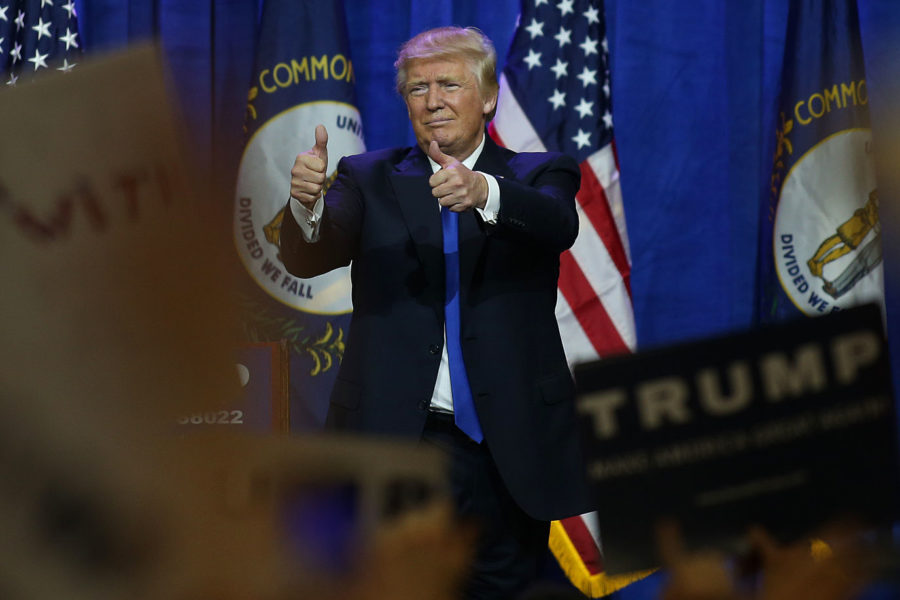Student loan change forecast under Donald Trump
Republican presidential candidate Donald Trump waves goodbye to the crowd during a rally at the Kentucky International Convention Center in Louisville, Ky. on Tuesday, March 1, 2016. Photo by Michael Reaves | Staff.
November 21, 2016
The student loan and repayment process is expected to undergo some major changes under the Trump administration, as outlined by BuzzFeed News.
Perhaps the biggest change is that student loans could be privatized, meaning banks will handle them rather than the federal government. This would make student loans more expensive for borrowers, as the federal government offers student loans at much lower interest rates than banks probably would. On the other hand, while borrowers wouldn’t benefit much from the change, banks and private lenders would benefit greatly.
The Trump administration also might make it more expensive to get a liberal arts degree. This will be accomplished through “risk-sharing” between colleges and the federal government. Schools will face a financial penalty if students can’t pay back their student loans, which will be passed along to the students, themselves, by colleges and banks charging higher interest rates to those whose degrees are less likely to get them a job.
Trump has also indicated that he will ease regulations on schools, which will in turn lower the cost of colleges.
Repayment of student loans would look similar to President Obama’s system, which allows borrowers to pay back federal loans as a portion of their income. The plan under Donald Trump, however, would be at a slightly higher percentage and for a shorter period of time. The current system is 10% of a borrower’s income for 20 years, whereas under Trump it would be 12.5% for 15 years. This change would mostly benefit borrowers with high loan balances, like graduate students.
Public service loan forgiveness is expected to be eliminated, which means that those in public-sector jobs would have to continue repaying loans even after 10 years.
To read the full article on BuzzFeed News, click here.


















































































































































